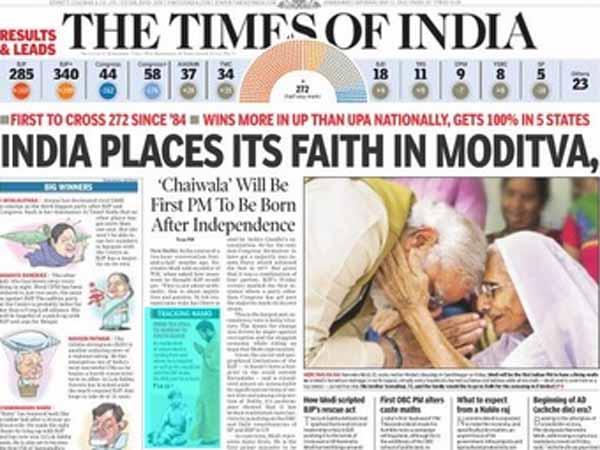Indian political spectrum was accustomed to coalition era hijacking. It is like policies were made in the midst of consulting coalition partners and that would amount to policy paralysis. When Vajpayee was the PM in his grand coalition of sorts, the effect on governance was unparalleled. The same effect was wholly visible in the first edition of the UPA where the left almost derailed the Indo US nuclear deal. UPA 2 was all about scams however again outsourced into its effectiveness owing to the DMK.
The situation after 2014 is now grim for all political parties as they try to gauge and grasp the enormity of their political nothingness. No longer policies or decisions are subjected to their concurrence and this has inevitably pushed them to the brink of saturation with a paucity of issues to bank upon. When Modi became the PM he had a simple majority which effectively eliminated all the meddling and this created an opportunistic togetherness of all the parties that are now slowly combining to form an anti BJP pole. However as that grand opposition of sorts is about to fructify, it’s still not united enough to throw a formidable challenge. Perhaps the biggest aspect in this foray is the attempt to demonize and paint Modi Govt in the same colours and contours of emergency era of Indira Gandhi.
And it’s all amounting to a seemingly fractured resolve. Mamata Banarjee, Arvind Kejriwal are at the fore front of protests of the ensuing demonetisation policy and the most surprising add on is the Shiv Sena.
On the other hand even the biggest political nemesis of BJP in form of Nitish Kumar has supported it. The other components of the political landscape in form of AIADMK or BJD too have invariably tended towards the government. And other splinter political entities like National Conference or the Left and even the SP are opposing the same.
The advantages and disadvantages of the demonetisation policy can be debated with constructive deliberations. However other political parties have secured that perfect opportunism of a plank to rest and take on the govt. Shiv Sena’s position on opposition and reiteration of the fact that they were not consulted before embarking on this policy enlightens two things. Firstly they are trying to seek a leverage in Maharashtra where they see as their own fiefdom and are victimising themselves as being bullied in their coalition govt there. Secondly it still highlights their obsolete coalition mentality which now doesn’t function at the centre any more. Shiv Sena’s stance is replicated across other party lines who are using this issue either to come cozy with the central govt for a better political future or using it to chart their own political niche in this process. In the midst of it all the common man is suffering owing to the grand scale implementation of the policy is made into a war cry and instigated looking away from the supposed long term benefits of demonetisation.
The process to make it a participatory democracy off course is important but then instead of seeking meaningful dialogue, a purposeful confrontation over the same is definitely against national interests. Let’s look at the odd even policy of the Kejriwal Govt that was lauded by political observers although inconvenience too was a crux there yet the same sudden application of a policy is not so well taken in case of latter.
The country has become an overflowing cup of economists at the drop of a hat over the replacement of the currency notes. Although praise and criticism is part of everything that we see in public life unfortunately a more constructive view would have been great instead of seemingly instant hooliganism. Rahul Gandhi and the Congress are applying their usual ‘I am visiting Dalit home’ theatrics to demonetisation whilst Akhilesh Yadav even preposterously spoke about laurels of parallel black economy. Uddhav Thackeray has called a surgical strike on Swiss banks and the left are touting it as something introduced tactically to benefit the ruling party in upcoming UP elections.
Instead of a scattered hobnobbing onto opportunism, political parties can use this as an opportunity to strike a chord with masses in lieu with creating a sense of awareness over this issue. That would propel them to be taken to seriously with respect to its role as a positive opposition rather than being an opposition just for the sake of it.
Even if the parties are dreaming of something that happened during the time of Indira Gandhi and emergency then its a completely wrong situation to think about the same. During the times of emergency, democracy was throttled which helped all parties galvanize and rally together to save it. In case of the ruling Modi Govt and demonetisation, it’s a populist scheme and is seemingly a nation building and black money off setting exercise and hence there is no cause for all parties to join together except for securing their own agenda and washing hands over the matter.
The political fallout over demonetisation may actually change the structure of the NDA. With Nitish supporting and Shiv Sena opposing, NDA may have a rearrangement of sorts. Unbelievable as it may seem, the issue has brought close two warring political ideologies in the name of the Left and TMC. This compromise of sorts to take on the Modi government unfortunately lacks sensibility and reflects nothing more but trying to survive politically post 2014 waters. However thanks to the simple majority it secured in the Lok Sabha, none of the razzmatazz and dramatisation in the streets can dictate governance and policy anymore and hence a complete mandate with that magical number of crossing 272 holds so much of a monumental importance.
